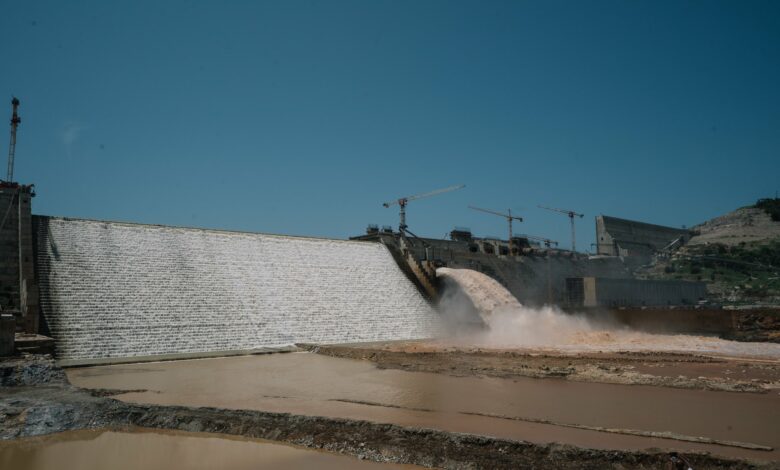
The Sudanese Minister of Irrigation and Water Resources, Daw Albait Abdulrahman Mansour, urged a re-establishing of negotiations between Sudan, Egypt and Ethiopia regarding the Grand Ethiopian Renaissance Dam (GERD) dispute.
He also urged to learn from the failure of the past negotiations sponsored by the African Union, which did not lead to results, while going forth on a new process of negotiations.
Mansour on Monday received the Egyptian ambassador in Khartoum, Hossam Issa in his office as part of efforts to move along the stalled negotiations.
Sudan is the most in need of consensus between the three countries and has been negatively affected by the prolonged negotiation without reaching a binding legal agreement on filling and operating the dam, Mansour said.
The various points of disagreement between Sudan, Egypt and Ethiopia require political interest from all parties, he stated.
The Egyptian ambassador congratulated the minister for being assigned to the new position, and handed him over a letter from his Egyptian counterpart in which he affirmed Egypt’s full readiness for cooperation and coordination in all fields.
The meeting discussed Ethiopia’s unilateral move in generating electricity from the Renaissance Dam, and touched on cooperation between the two parties to achieve common goals and between the countries of the region and the Nile Basin countries.
The Egyptian Foreign Ministry on February 20 slammed Ethiopia’s unilateral start of the operation of the Grand Ethiopian Renaissance Dam, calling it a violation of its commitments under the 2015 Declaration of Principles signed by the Ethiopian Prime Minister.
Ethiopia announced that it will start producing electricity for the first time on February 20 from the GERD, despite contentions from downstream nations Egypt and Sudan.
Ethiopian Prime Minister Abiy Ahmed officially inaugurated the partial commencing of power generation of GERD, the Ethiopian Press Agency (ENA) reported on Sunday.
Negotiations over the GERD have officially stopped since April 2021, after Egypt, Sudan and Ethiopia failed to reach an understanding before the start of the second filling of the dam, which Ethiopia implemented in July.
Cairo and Khartoum reject Ethiopia’s insistence on filling the dam before reaching a binding agreement on filling and operation.
Egypt, which relies considerably on freshwater from the Nile, has voiced fears that the GERD would negatively impact the country’s water supply.
Egypt has also insisted that measures be put into place to protect downstream countries in case of drought during the dam’s filling process.
Egypt and Sudan say they want a legally binding agreement, while Ethiopia says any pact should be advisory.
The two nations consider the dam a threat to their vital water supplies, while Ethiopia considers it essential for development and doubling its electricity production.
The downstream nations fear possible blows to water facilities, agricultural land, and overall availability of Nile water.
Negotiations over the dam between Egypt, Ethiopia, and Sudan have stalled for years, with the three parties ultimately failing to reach any concrete agreement.
The disputed dam is the largest hydroelectric project in Africa, with a cost of more than four billion dollars. The construction of the dam began in 2011.




